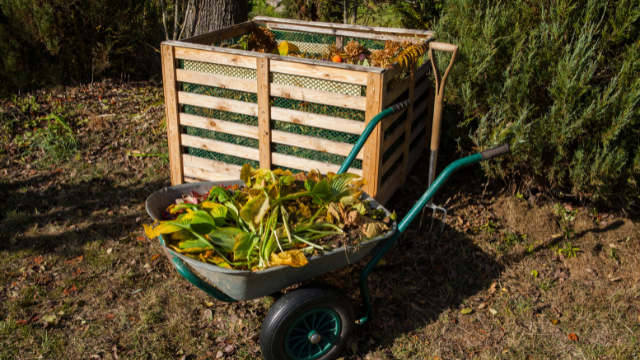
If you want to create a garden that works in harmony with nature, minimising environmental impact while maximising functionality, you need to consider sustainable gardening. In this article, garden designer Catherine Payne explores practical options for busy homeowners.
What is sustainable gardening?
According to the Royal Horticultural Society (RHS), the term sustainable gardening refers to practices that maintain a garden without depleting natural resources or causing ecological damage. The aim is to reduce the amount of harm being done to the local environment, while actively supporting conservation, ecosystems and biodiversity.
Essentially, it’s about creating a garden that is beneficial for both the gardener and the planet by making eco-friendly choices in plant selection, water usage, waste reduction and resource management.
Here’s a more detailed look at sustainable gardening practices:
Sustainable plant choices
Choosing plants that are native to your region helps ensure they are well-suited to the climate and soil, requiring less maintenance and fewer resources. For example, trees like silver birch and bird cherry (prunus padus), shrubs like dog rose and dogwood, and wildflowers like bluebells and foxglove.
These plants reduce the need for excessive watering and maintenance, and also provide valuable habitat and food sources for pollinators (bees and butterflies) and other wildlife.
You can also opt for plants that thrive with minimal watering, a crucial factor for water conservation, especially in drier climates.
Managing water use
With heatwaves becoming more common in our summer months, rainwater harvesting is now an essential tool for sustainable gardening. Collecting rainwater in barrels or other containers can significantly reduce reliance on mains water for irrigation.
Consider other water-efficient irrigation methods, such as using drip bottles or soaker hoses that deliver water directly to plant roots, minimising evaporation. Applying a layer of mulch around plants helps retain soil moisture, reducing the need for frequent watering.
Reducing garden waste
Composting involves transforming kitchen scraps and yard waste into nutrient-rich compost, reducing landfill waste and reducing the need to buy soil from garden centres. Before dumping green waste in your recycling bin or local recycling facility, consider using it for mulch or log piles.
You can also reuse other materials such as old containers, furniture or wood for creative garden projects.
Minimise chemical use
Sustainable gardening encourages the adoption of organic pest control, such as introducing plants that attract insects that prey on garden pests such as aphids and caterpillars. For example, try introducing marigolds, dill, lavender, sweet alyssum and fennel. Some plants, such as basil and mint, actually repel flies, mosquitoes and other garden pests.
Avoid synthetic fertilisers by choosing natural alternatives like compost, manure or wood ash to nourish your plants.
Encourage a healthy ecosystem
Take steps to improve soil health by incorporating organic matter, like compost and mulch, to improve soil structure and fertility, supporting healthy plant growth. Try leaving some areas of your garden to grow wild, to provide a habitat for wildlife and beneficial insects.
Where possible, plant natural hedges for boundaries rather than fencing. There are many varieties of hedges that provide a beautiful barrier, providing privacy for your garden and a habitat for wildlife.
Want to promote sustainable gardening?
By adopting these sustainable gardening practices, you can create a beautiful, productive, and environmentally friendly garden that benefits both you and the planet.
With the help of a professional garden designer, adopting environmentally-friendly ideas doesn’t have to mean compromising on practicality or design. With thoughtful planning, it’s possible to create a space that’s both functional and beautiful. From St Albans to Shefford, Flower & Stone crafts bespoke gardens across Hertfordshire and Bedfordshire.
Contact us today to take your first step to your perfect sustainable garden…
